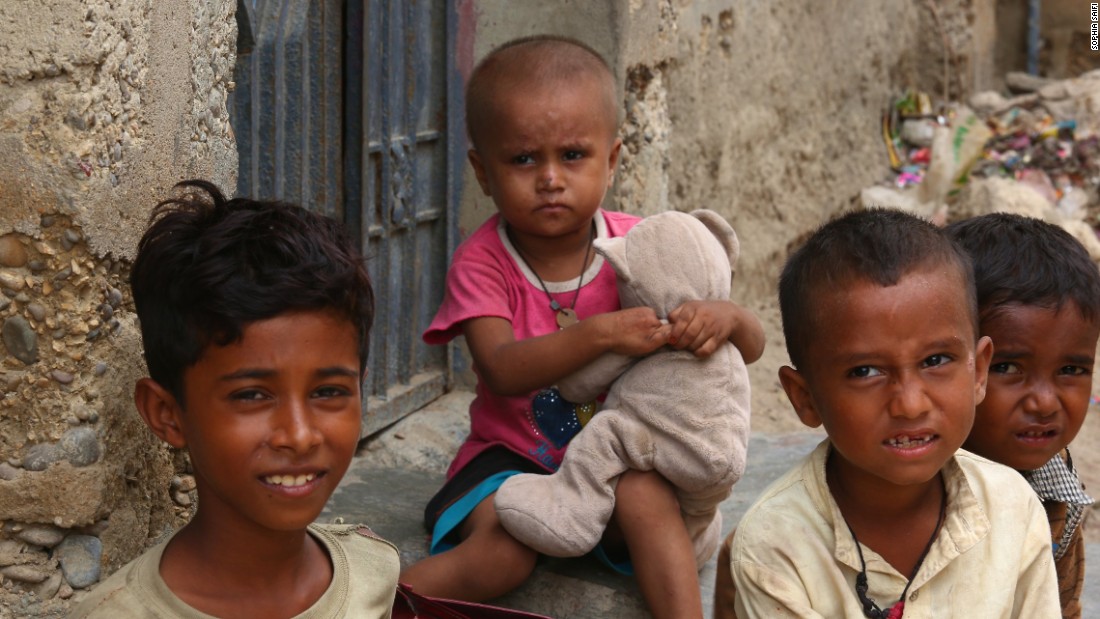Pakistan's stateless Rohingya
Karachi, Pakistan (CNN)For more than 20 years, Mohammad Rasheed has eked out a living selling fish on the southeastern tip of Pakistan's port city of Karachi.
Now 41, Rasheed says he was just 10 years old when members of his family fled religious persecution in Myanmar's western coastal state of Rakhine, heading first to neighboring Bangladesh, then across the border to the Indian city of Calcutta, before finally making the journey north by foot to Pakistan via Kashmir.
"I am a Rohingya," he tells CNN, while seated on the edge of an old rickety red boat. "And I have no home."
For a day's work, Rasheed earns the equivalent of $4. He has six children and cannot afford a mobile phone.
He is aware of the ongoing Rohingya crisis in Myanmar, occasionally using a friend's phone to keep in touch with his sister and brother who stayed behind in their village in Rakhine.
But in recent weeks Rasheed has been unable to contact anyone back home.
"I haven't heard from my brother or sister since the 18th of August," says Rasheed, who has been tracking updates on social media and on pictures circulating on messenger apps. "We're from near Maungdaw (town) and our village has been totally burnt, all of it. I don't know where they are at all, I don't know if they have been killed, if they're alive. I don't know anything at all."
In the last two weeks, more than a quarter of a million Rohingya refugees have flooded into Bangladesh, fleeing the latest outbreak of violence in Rakhine, the United Nations refugee agency said Friday.
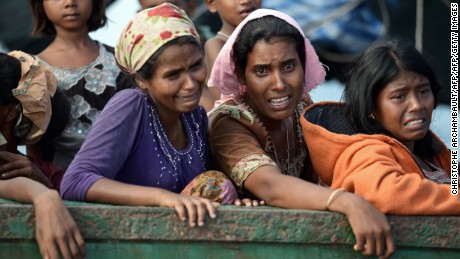
Who are the Rohingya and why are they fleeing? 01:35
Arakanabad slum
Mohammad Rasheed is just one of 55,000 Rohingya currently believed to be living in Pakistan, according to the National Data Registration Authority (NADRA), the majority of whom are in Karachi.
There, in the Arakanabad slum -- or "Land of Arakan," so dubbed in reference to the former Burmese name for Rakhine -- thousands of Rohingya families, many of whom arrived several decades previous, have gathered together to form one of the largest communities outside of south west Myanmar.
Unlike Rasheed, most of those who reside in Arakanabad have been in Pakistan for more than 35 years, having fled earlier bouts of conflict and violence, with some arriving as far back as the 1960s when Pakistan and Bangladesh were one country and borders were more porous.
But despite being in Karachi for several generations, many of those Rohingya who live in Arakanabad are not eligible for citizenship. According to many Rohingya interviewed by CNN, only those who arrived before the civil war of 1971 are provided with Pakistani ID cards, without which it is impossible to get access to employment, basic health care or education.
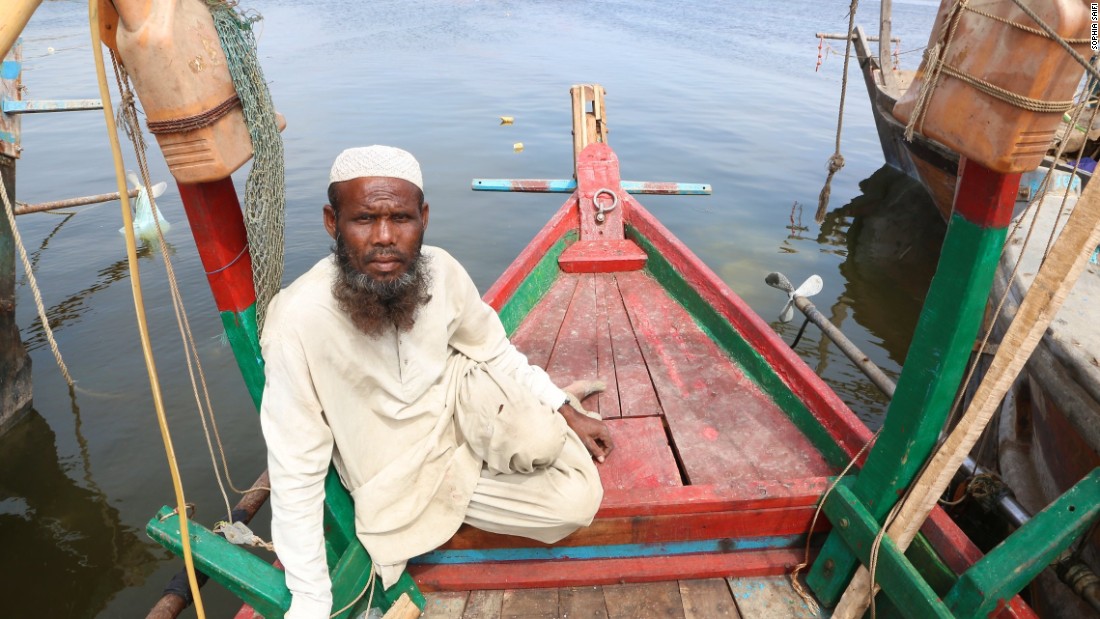
Fisherman, Mohammad Rasheed, 41, sits aboard a boat in southeastern Karachi.
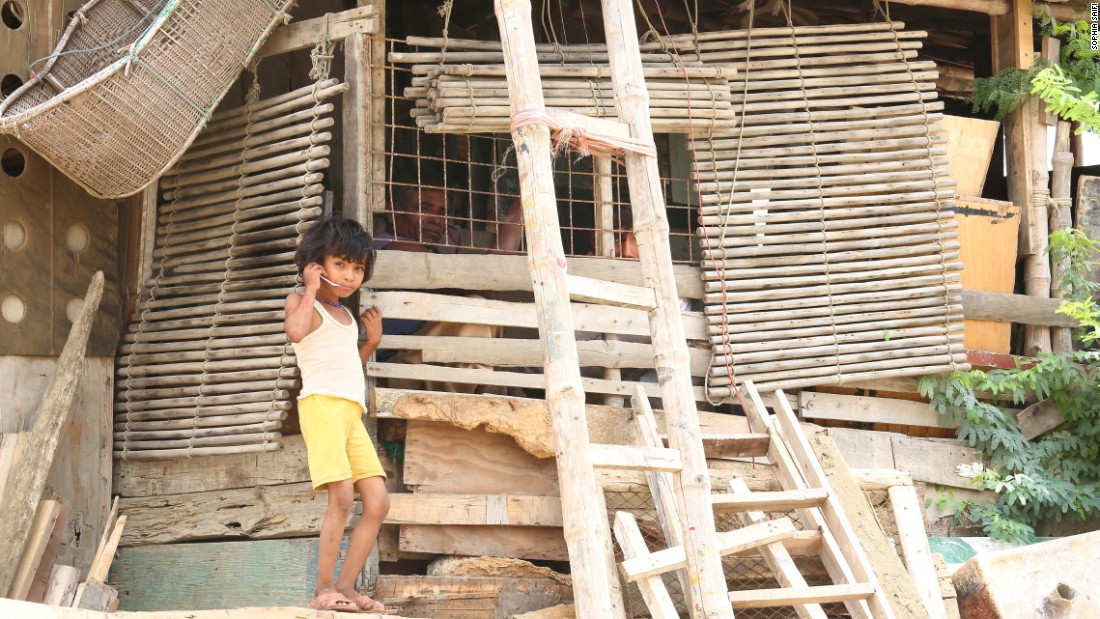
A young Rohingya child stands by a dwelling in the Arakanabad slum.
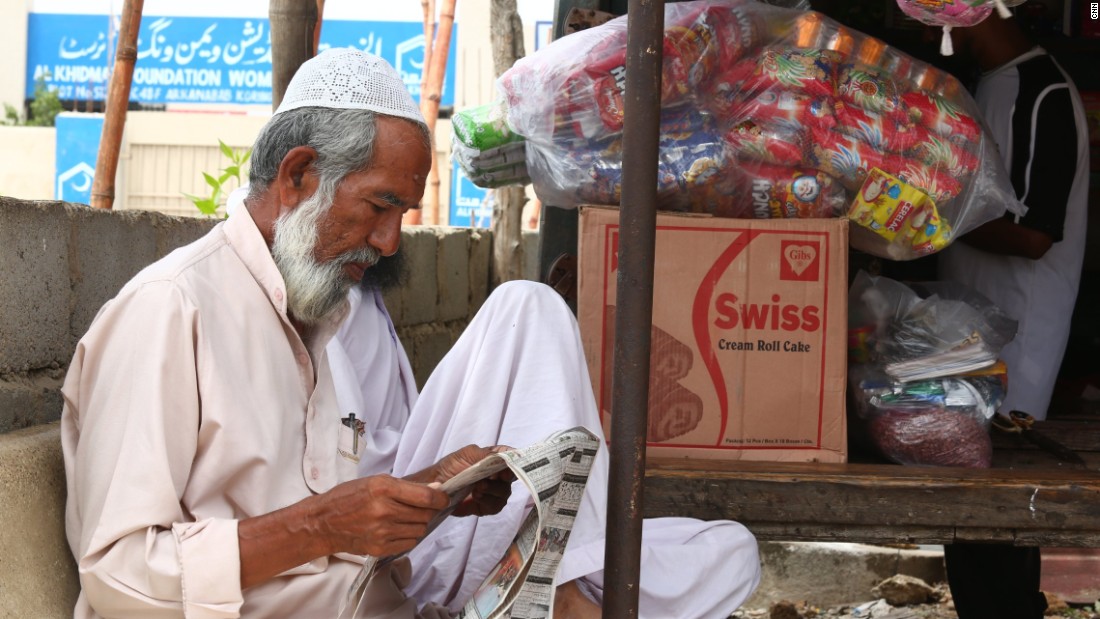
A Rohingya man reads a newspaper in the Arkanabad slum.
During the summer months, the Arakanabad slum is full of barefooted children who splash around in the post-monsoon sludge that has gathered in the dirty streets. On weekends the beach is a cheap respite, but many children are unable to visit. Sixty-one-year-old Aman Ullah told CNN that he can't take his grandchildren to the coast because "the security officials stop and ask for identification."
It's a situation many in Arakanbad are growing tired of.
Activist and spokesperson for the Rohingya Solidarity Organization, Noor Hussain Akrani, believes the time has come for the Pakistani government to recognize Rohingya as equal citizens.
"Pakistani Rohingya are not a burden on this country," Akrani tells CNN, while seated in a tea shop, surrounded by senior members of the community.
"We (the Rohingya) are an oppressed nation which works hard wherever we go; we work in factories, our women and children weave mats in homes. If a child is born, our mothers and sisters are not able to give birth in hospitals, our children our deprived of education, they don't have access to state schools, we are living a very, very difficult life. Nothing will change until we are given citizenship from Pakistan, where else will we go?"
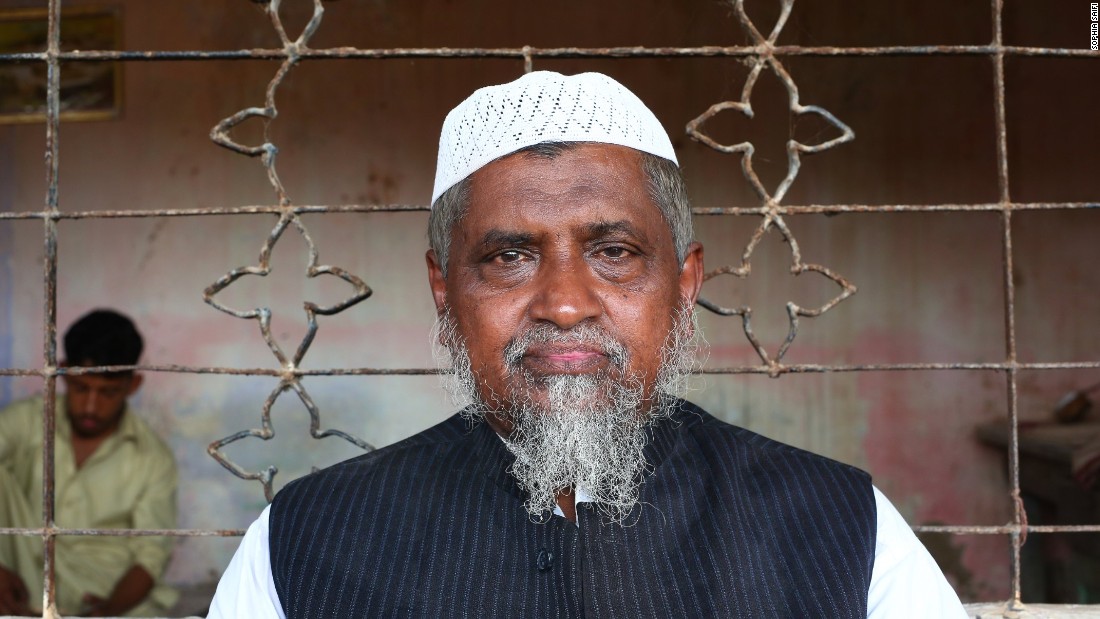
Noor Hussain Akrani- Spokesperson of the Rohingya Solidarity Organization.
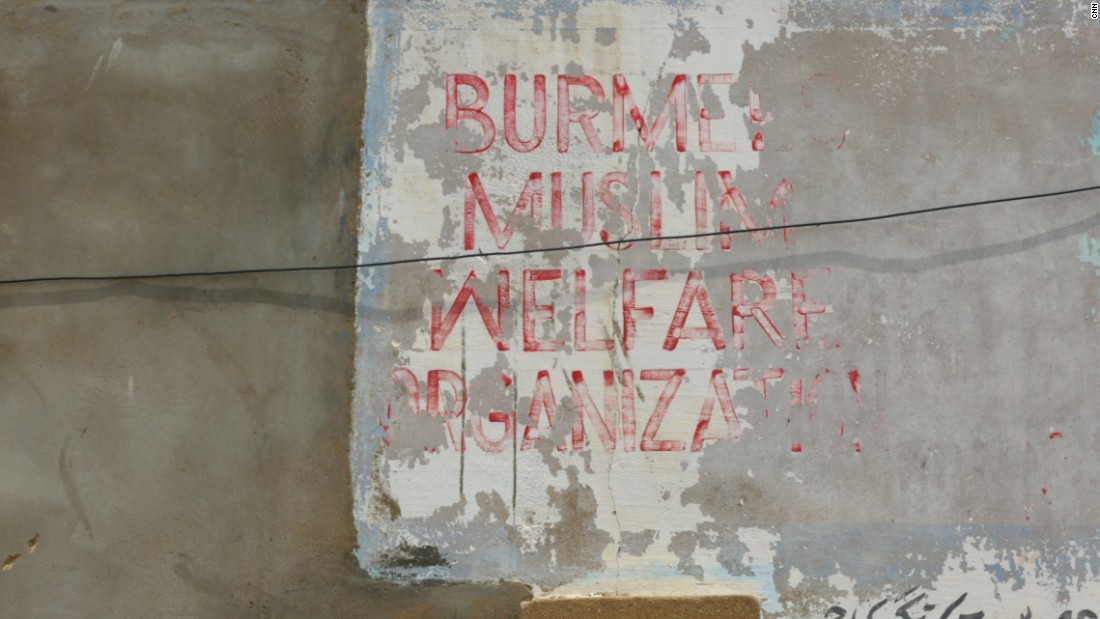
Sign for Burmese Muslim Welfare Organisation in Arkanabad.
An official, who asked to remain unnamed, from Pakistan's National Data Registration Authority (NADRA), the agency which issues ID cards, told CNN that "the agency is merely following the Pakistan government's policy." A request for comment to the interior ministry by CNN was not returned.
A report published by the UNHCR this year stated that the Pakistani government "hosts a yet to be determined number of persons who are stateless or at risk of statelessness due to unresolved nationality issues." These include the Rohingya settled in Karachi.
According to Pakistani policy, the Rohingya do not qualify as asylum seekers or refugees. But since the government has not specifically explained what rights stateless people have, the future of the Rohingya in the country remains in flux.
The UNHCR report also claims, "Statelessness remains a very sensitive issue due to geopolitical and historical developments in the region." But it has stressed that under the UNHCR 1961 Convention on the Reduction of Statelessness "there is a need (in Pakistan) to identify stateless persons and attend to their protection needs."
Ongoing persecution
The problems faced by Rohingya in Pakistan echo those faced by Rohingya at home in Myanmar, where they are also denied the right of citizenship. The predominantly Buddhist Myanmar considers them Bangladeshi, but Bangladesh says they're Burmese.
UN spokesman William Spindler said 270,000 Rohingya had crossed the border since August 25, when clashes between the military and militants intensified.
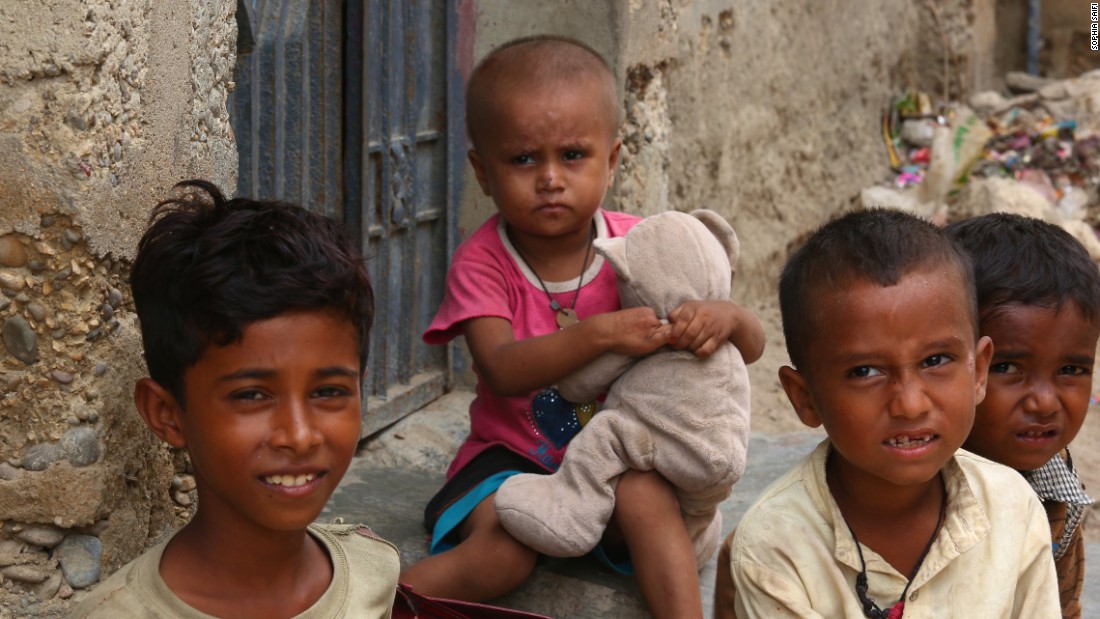
Rohingya child clutching a battered teddy bear.
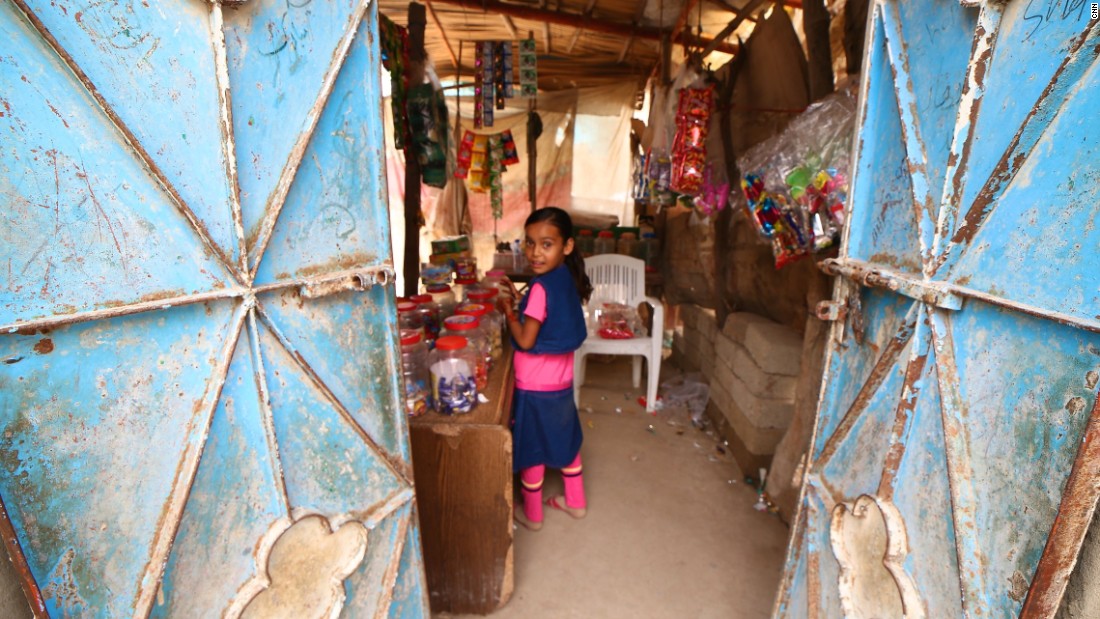
Sweet shop in Arkanabad.
Rohingya militants killed 12 security officers in border-post attacks almost two weeks ago, according to Myanmar state media.
In December 2016, the Brussels-based International Crisis Group released a report claiming that a Rohingya insurgency in Rakhine state was being spearheaded by an "émigré-led force of trained Rohingya fighters."
That report identified a key figure in the insurgent group -- known as Harakah al-Yaqin (Faith Movement) -- as Ata Ullah, suggesting "he went to Pakistan and possibly elsewhere, and that he received practical training in modern guerrilla warfare."
Speaking to CNN, Omar Shahid Hamid, the provincial head of the intelligence wing of Pakistan's Counter Terrorism Department, dismissed the ICG's report, saying that there is no "concrete proof of any linkages" with militant groups operating out of Karachi or Pakistan and the insurgency in Myanmar.
Government condemnation
On Friday large-scale protests in support of the Rohingya were held in Pakistan, Bangladesh, Indonesia and Malaysia.
Pakistani activists and government officials have unanimously condemned the situation in Myanmar. The Pakistan government passed a resolution Friday calling the persecution of Muslims in Rakhine state a "genocide," but it has so far made no moves to change its policy on the resettlement of Rohingya refugees in Pakistan, who are classified as "illegal immigrants."
News Courtesy: www.newagebd.net

